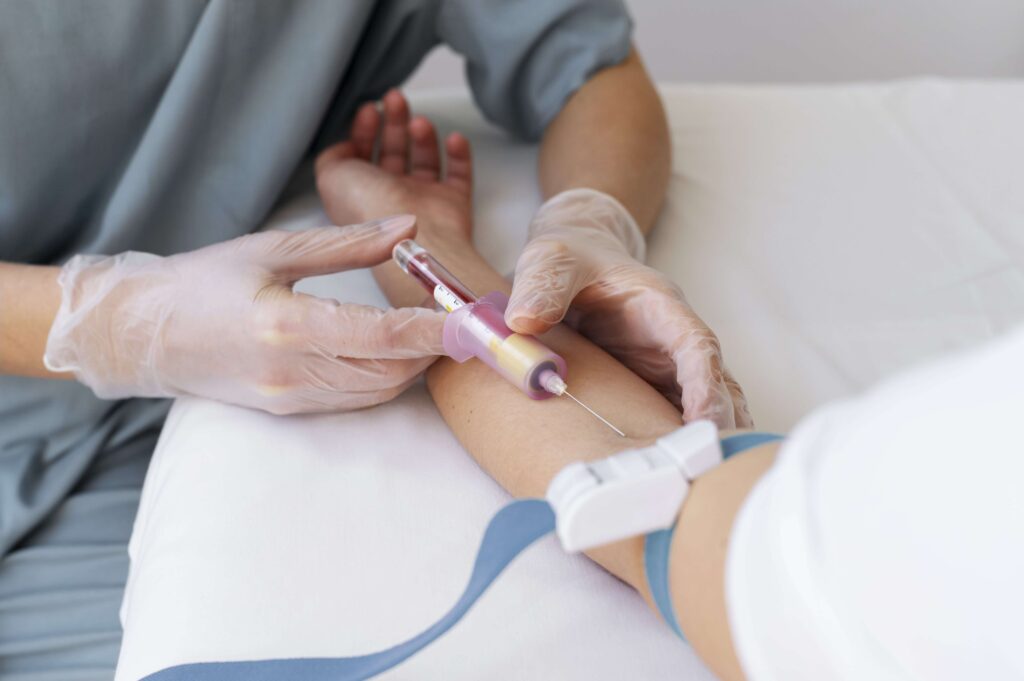Why IVF Follow-Up Injections at Home?

In vitro fertilization (IVF) has brought hope and joy to countless couples struggling with infertility. It’s a complex medical procedure that involves several steps, including hormone injections to stimulate egg production. But the journey doesn’t always end with the initial IVF cycle. Sometimes, follow-up injections are required to support a pregnancy or prepare for a subsequent cycle. This blog will focus on the process of administering IVF follow-up injections at home, providing a comprehensive guide for those who find themselves on this path.
IVF follow-up injections at home may be necessary for various reasons. Some women require additional hormonal support during the early stages of pregnancy, while others may be preparing for a frozen embryo transfer (FET) or another IVF cycle. Administering these injections at home offers several benefits:
Convenience: Visiting a clinic or hospital for injections can be time-consuming and stressful. Administering the injections at home allows patients to maintain a more flexible schedule.
Cost-Effective: Frequent clinic visits can incur additional expenses. Home injections can save patients money in the long run.
Privacy: Many couples prefer to keep their fertility journey private. Administering injections at home allows for more discretion.
Familiar Environment: Home is a comfortable and familiar setting, which can help reduce stress during the IVF process.
Personalized Care: Administering injections at home means you can receive personalized guidance from healthcare professionals and pharmacists.
Types of IVF Follow-Up Injections
The specific type of follow-up injection you’ll need will depend on your unique circumstances. Here are some common types of IVF follow-up injections:
Progesterone Injections: Progesterone is a hormone essential for maintaining pregnancy. Women who have undergone IVF often need progesterone injections during the early stages of pregnancy to support the uterine lining and prevent miscarriage.
Estradiol Injections: Estradiol is an estrogen hormone. Some women may require estradiol injections to supplement their hormone levels during the IVF process or early pregnancy.
Luteinizing Hormone (LH) Injections: LH is a hormone that plays a key role in the menstrual cycle and ovulation. In some cases, LH injections may be necessary to trigger ovulation or support early pregnancy.
Human Chorionic Gonadotropin (hCG) Injections: hCG is a hormone that helps maintain the corpus luteum, which produces progesterone in the early stages of pregnancy. hCG injections are sometimes prescribed as part of IVF follow-up care.
Gonadotropin-Releasing Hormone (GnRH) Injections: GnRH injections are used to regulate the menstrual cycle, suppress the release of eggs during IVF, or manage endometriosis.
Blood-Thinning Injections: In some cases, blood-thinning injections may be necessary to prevent complications like blood clots during pregnancy.
Administering IVF Follow-Up Injections at Home
Administering IVF follow-up injections at home may seem daunting at first, but with the right guidance and preparation, it can become a routine part of your IVF journey. Here are the steps to help you navigate this process:
Consult with Your Healthcare Team: Before beginning any follow-up injections, consult with your fertility specialist or healthcare team. They will prescribe the specific medications you need and provide detailed instructions for administration.
Gather Your Supplies: Your healthcare provider or pharmacy will supply you with the necessary medications, needles, syringes, and alcohol swabs. Ensure you have everything ready before you start.
Choose the Injection Site: Most injections are administered subcutaneously (just under the skin) or intramuscularly (into the muscle). Your healthcare provider will instruct you on the appropriate injection site.
Prepare the Medication: Carefully follow the instructions provided by your healthcare provider to prepare the medication. Double-check the dosage to ensure accuracy.
Wash Your Hands: Proper hand hygiene is essential. Wash your hands thoroughly with soap and water before handling any injection materials.
Disinfect the Injection Site: Use an alcohol swab to clean the injection site and allow it to dry before proceeding.
Position the Needle: Hold the syringe like a pencil and gently insert the needle into the skin or muscle at the appropriate angle.
Inject the Medication: Slowly push the plunger to administer the medication. Take your time, and avoid any sudden movements.
Remove the Needle: Once the medication is administered, withdraw the needle at the same angle you inserted it.
Dispose of Sharps Safely: Place the used needle and syringe in a sharps container or an empty, sealed plastic bottle, as recommended by your healthcare provider or local regulations.
Monitor for Side Effects: After administering the injection, monitor yourself for any immediate side effects or adverse reactions. Contact your healthcare provider if you experience any unusual symptoms.
Maintain a Schedule: It’s crucial to maintain a consistent injection schedule as prescribed by your healthcare provider. Set alarms or reminders if needed.
Support and Resources
Administering IVF follow-up injections at home can be emotionally and physically challenging. It’s essential to have a support system in place and access to resources that can help you through the process:
Emotional Support: Lean on your partner, family, and friends for emotional support. Consider joining online support groups or seeking counseling to help cope with the stress and emotions associated with infertility and IVF.
Pharmacist Assistance: Your local pharmacist can be a valuable resource. They can provide guidance on medication administration, answer questions, and ensure you have the necessary supplies.
Healthcare Provider Access: Keep the lines of communication open with your healthcare provider. They are there to support you and address any concerns or questions you may have.
Educational Materials: Many pharmaceutical companies offer educational materials and videos to help patients learn how to administer injections properly.
Fertility Clinics: Fertility clinics often have dedicated nurses and support staff who can guide you through the process of administering IVF follow-up injections at home.
Conclusion
Administering IVF follow-up injections at home can be a challenging but necessary part of the journey for many couples striving to achieve their dream of parenthood. By following the guidance of your healthcare team, maintaining a consistent schedule, and seeking support when needed, you can navigate this aspect of the IVF process with confidence and hope. Remember that you are not alone, and there are resources and communities available to support you on this path to parenthood.
